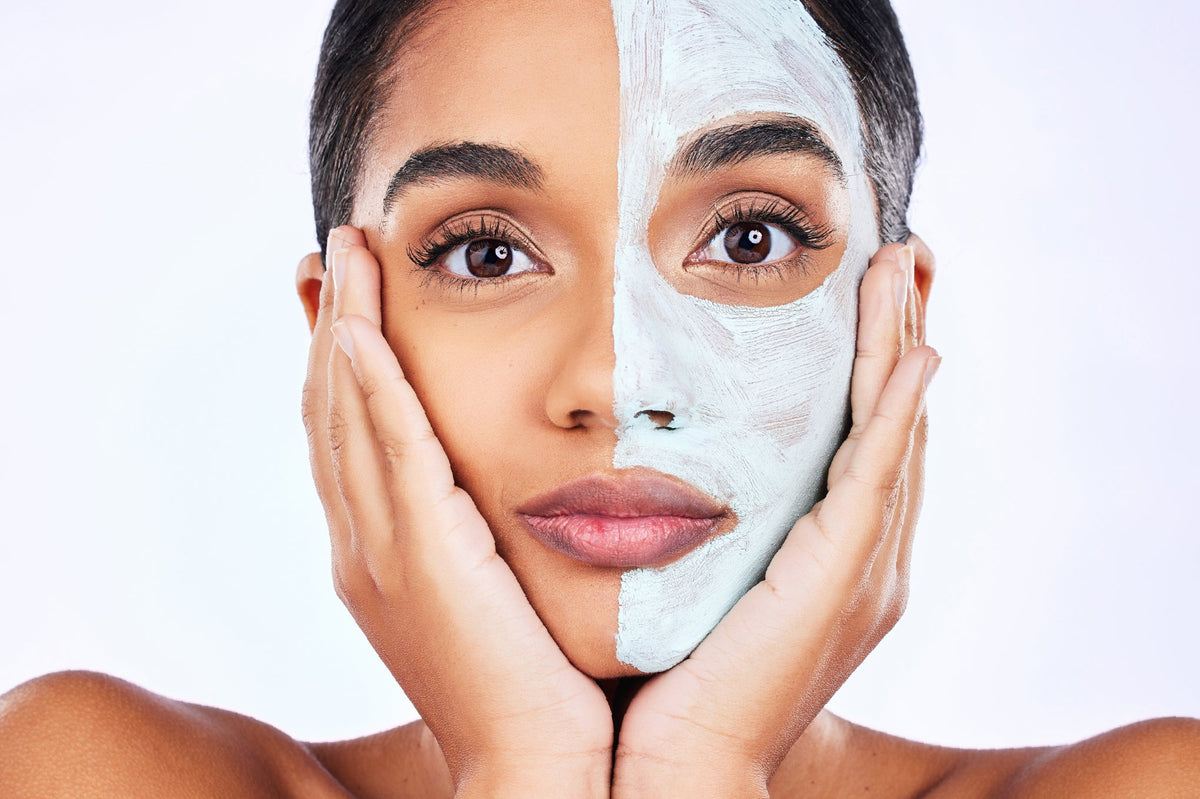
If you’ve been looking into de-tanning or brightening treatments, you’ve probably come across more than a few myths. Some of them sound convincing, others are just plain wrong. Still, if you want a skincare routine that actually works, you need to separate fact from fiction.
Let's walk through the most common myths—and the real facts you need to know—to help you build smarter habits for healthier, more even-toned skin.
First, What Are De-Tanning and Brightening?
De-tanning is the process of reducing sun-induced pigmentation by exfoliating dead skin cells and encouraging fresh skin renewal. It can lighten a tan temporarily, but it won’t stop future tanning unless you protect your skin from the sun.
Brightening, on the other hand, focuses on evening out your overall skin tone. It’s about restoring clarity, fading dark spots, and boosting a natural glow—not making your skin lighter than it’s meant to be.
Common Myths About De-Tanning and Brightening
Myth 1: De-Tanning Creams Remove Tan Permanently
Tanning happens when your skin produces extra melanin to defend itself from UV rays.
While de-tanning products can help fade surface pigmentation, they can’t change how your skin naturally reacts to the sun. Without daily sun protection, the tan will always come back.
Myth 2: Brightening Products Are Only for Lighter Skin
That idea couldn’t be further from the truth.
Brightening is about improving skin clarity, not changing your natural skin color. Also, uneven tone, dullness, and dark spots affect every skin type, from the fairest to the deepest complexions.
Myth 3: A Tan Means Your Skin Is Healthy
Not quite. When you tan, it’s your skin signaling damage, not health. Still, a lot of people associate a tan with looking "glowy" or "fit." In reality, repeated UV exposure accelerates aging, creates pigmentation issues, and raises your risk for serious conditions like skin cancer.
Myth 4: You Can Skip Sunscreen If You Use De-Tanning Products
No, you can’t. De-tanning and brightening treatments often make your skin more sensitive to UV damage. At the same time, if you’re not protecting your skin with a good sunscreen — ideally SPF 50 PA++++ — you’re just undoing all the work you put into treating it.
Myth 5: De-Tanning Products Can Repair All Sun Damage
It would be great if that were true, but it’s not. De-tanning treatments can lighten a recent tan and help with surface pigmentation, but they can’t rebuild Collagen or erase deep wrinkles. Prevention still matters way more than trying to fix damage later.
Myth 6: Brightening Products Will Make You Look Whiter
Brightening isn’t about whitening — period. Instead, ingredients like Niacinamide, Vitamin C, and Glycolic Acid work by reducing uneven pigmentation and helping reveal your skin’s natural, healthy glow. Then, when your skin tone is balanced, you’ll just look more refreshed—not lighter.
Smart Tips for De-Tanning and Brightening
1. Regular Exfoliation Makes a Big Difference
Dead skin holds onto extra melanin, making tans look darker and duller. Next, by exfoliating regularly, you clear out that layer and allow new, healthier skin to surface.
For example, using a chemical exfoliant like Glycolic Acid or a gentle exfoliating body wash can help you get brighter skin without causing irritation.
2. Choose Products That Fit Your Skin Type
Using the right product matters as much as using the right technique. If you have oily skin, lightweight formulas with ingredients like Niacinamide work best. If your skin is dry or recovering from sun damage, reach for hydrating options packed with Hyaluronic Acid, Aloe Vera, or both.
The Bottom Line
Skincare myths can waste your time, money, and effort if you’re not careful. At the end of the day, tanning is just your skin’s emergency response to UV exposure — it’s not a healthy sign.
Also, no de-tanning or brightening product can undo years of sun damage. Still, with the right products, smart habits, and serious daily sun protection, you can keep your skin clear, strong, and naturally radiant for the long haul.
FAQs
Can you permanently lighten your skin tone?
No, and you shouldn’t try. Brightening treatments help even out your natural tone by reducing discoloration. They don’t — and shouldn’t — change the core color of your skin.
What are the risks of de-tanning treatments?
When used wrong, they can cause dryness, sensitivity, and irritation. To stay safe, patch-test new products, follow usage instructions carefully, and always follow up with a good moisturizer and a sunscreen for oily skin.
What are the best ingredients for skin brightening?
Look for proven performers like:
1. Niacinamide, to strengthen your barrier and fade dark spots.
2. Vitamin C, to boost glow and fight off environmental stress.
3. Glycolic Acid, to gently exfoliate dead skin.
4. Alpha Arbutin, to target stubborn pigmentation without causing irritation.
Shop The Story
Gently exfoliates for smoother, acne-free skin
See reviews





